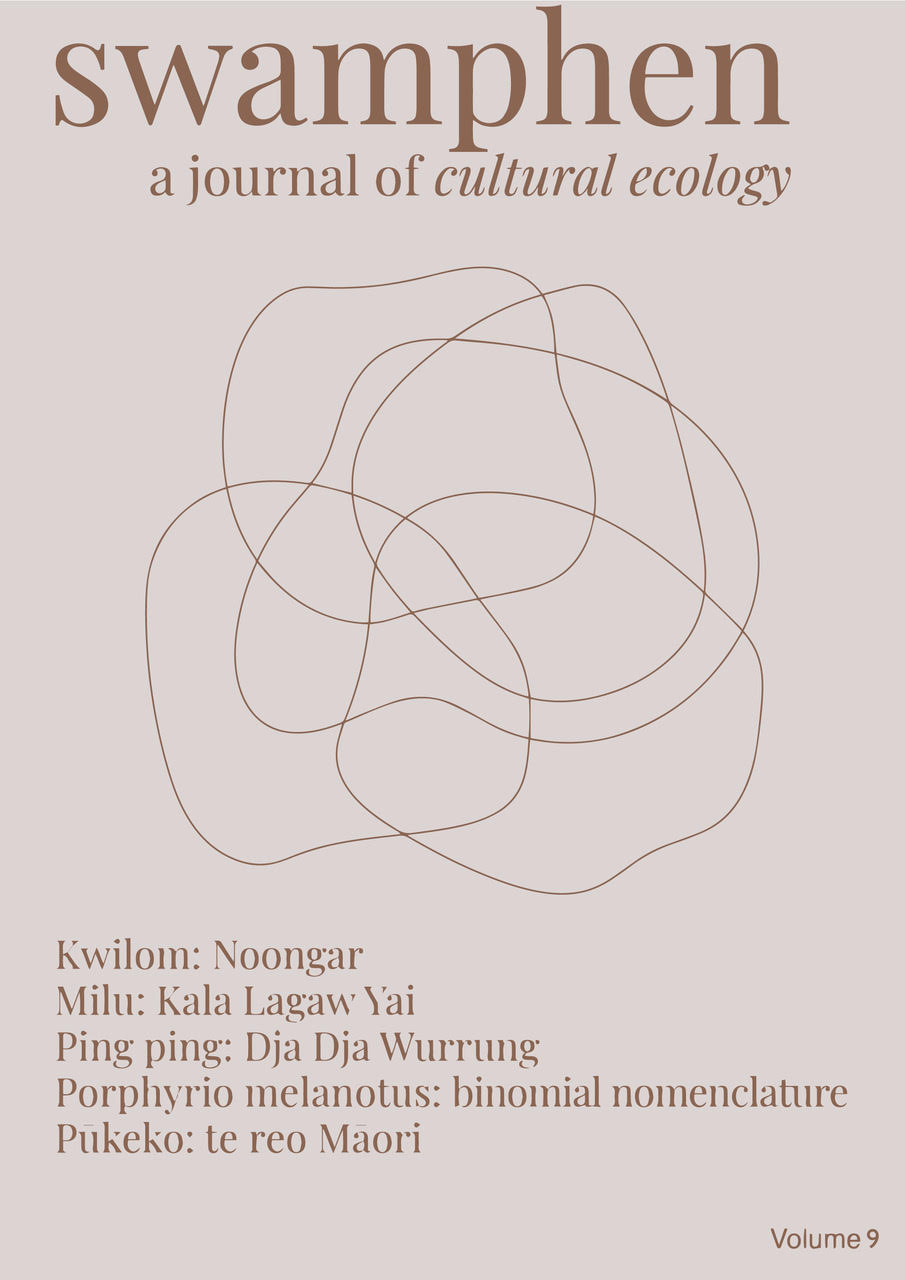Love Letters to Lichen
DOI:
https://doi.org/10.60162/swamphen.9.17544Keywords:
Lichen, poetry, speculative futures, more-than-humanAbstract
The T. Rudzinskaitė Memorial Amateur Lichenologists Society was founded in 2018 by continuing co-chairs Tessa Zettel and Dr. Sumugan Sivanesan at Nida Art Colony on the Curonian Spit, Lithuania, eighth Eco-zone. Named in honour of Tekle Rudzinskaitė, Lithuania’s foremost amateur lichenologist, after 73 years the Society remains dedicated to promoting the love and study of lichen in this galaxy and beyond. Its steadily growing membership of multispecies co-constituents participate in myriad curious forms of research, happenings and publications, collectively exploring speculative narratives and rituals around extinction that take lichen as guide, teacher, poet and friend. In 2091 the liveliest of its many enthusiast-led working groups are the emergent Crystal Radio Lab, the Metta Verse Mutual Aid Space Program (with subsidiary SpaceTime Fab Lab) and the Therolinguistics Reading Group. Periodically the Society publishes a bulletin—in whatever ready context is amenable—updating members on its latest movements; what follows is the 2089 edition, regrettably somewhat delayed. Please click on the links between the written pieces in the newsletter to see the recordings.
Downloads
Published
Issue
Section
License
Authors who publish with this journal agree to the following terms:- Authors retain copyright and grant the journal right of first publication with the work simultaneously licensed under a Creative Commons Attribution License that allows others to share the work with an acknowledgement of the work's authorship and initial publication in this journal.
- Authors are able to enter into separate, additional contractual arrangements for the non-exclusive distribution of the journal's published version of the work (e.g., post it to an institutional repository or publish it in a book), with an acknowledgement of its initial publication in this journal.
- Authors are permitted and encouraged to post their work online (e.g., in institutional repositories or on their website) prior to and during the submission process, as it can lead to productive exchanges, as well as earlier and greater citation of published work (See The Effect of Open Access).

